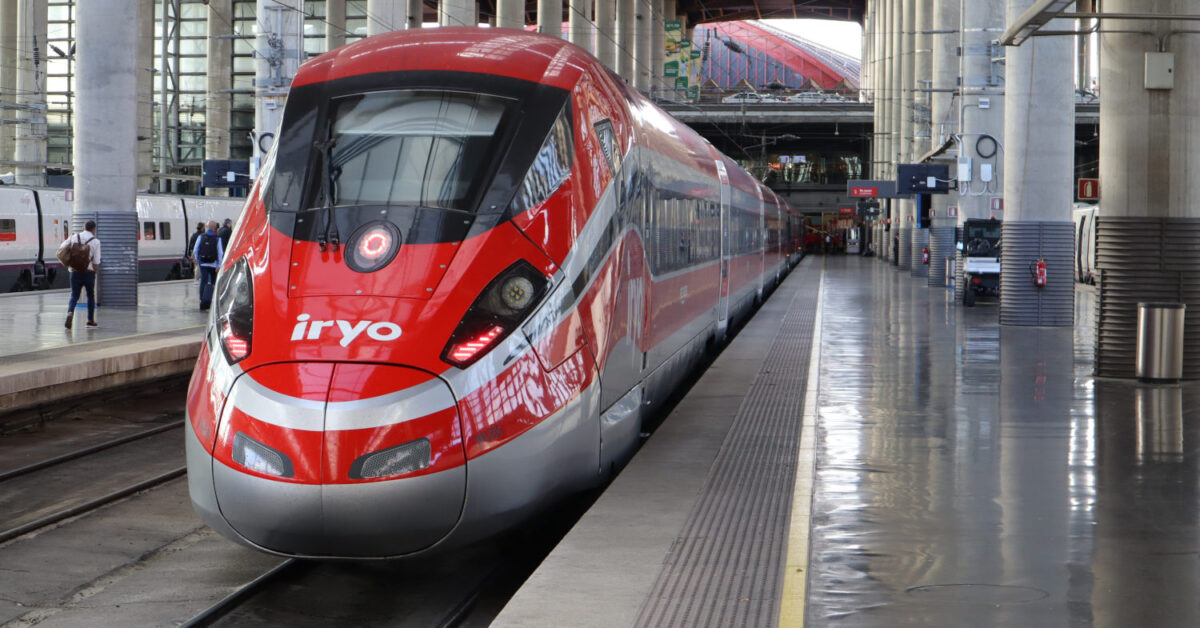The first staff walkout in Iryo’s history, coinciding with the operator’s third anniversary on the rails, wraps up its opening phase with only 15% workforce support, according to company figures.
Trains designated as essential services under the agreement with the Ministry of Transport ran as scheduled, with the operator’s control centres adapting plans and reallocating travellers from cancelled services where necessary.
Of the three unions representing Iryo staff – CGT, Alferro, and CCOO – only CGT and Alferro backed the action. Beyond the current three-day stoppage from 25 to 27 November, further rolling strikes are slated between 5 and 8 December.
Maintenance personnel, CEX, control room, and office staff cite the stalled Collective Agreement talks, which will impact working conditions from 2026 onwards and cover all professional categories within Iryo except drivers, who are governed by a separate agreement.
A primary grievance centres on the ongoing pay freeze stretching back to 2022.
Legitimate Grievances, Flawed Tactics
While industrial action and demonstrations are entirely legitimate levers for advancing employment conditions, this time the unions have, without success, sought to tarnish the image of the open-access operator, airing unverifiable internal figures and challenging the company’s commercial strategy.
Rather than simply raising the profile of their demands, union leaders have publicly criticised Iryo’s strategy – including typical business decisions expected of a newcomer in a fiercely contested rail market, where three operators and four brands fiercely compete for passenger share.
Union objections extend to the acquisition of three new trainsets – an outlay of nearly €100 million – which actually enable expanded service frequency, increased staffing, and greater market presence. Protestors have also described investment in advertising, sponsorships or corporate partnerships with travel agencies as wasteful, despite their vital role in developing brand awareness, ticket sales, and long-term growth necessary to break out of the red.
Unions argue that, despite a positive EBITDA, Iryo’s management justifies the wage freeze on the basis of ongoing losses. Yet, a positive EBITDA does not equate to net profits, particularly for an operator still absorbing heavy capital expenditures. The accounts are transparent: while Iryo closed 2024 with an EBITDA of €111.4 million, net losses for the year stood at €31 million.
The company has yet to release more up-to-date figures for 2025, despite repeated requests, but the ongoing price war in the sector shows no signs of abating.
Back in October, Iryo told Preferente it expects to post profits in 2027, marking five years since launching its services.
Financial Realities Hinder Labour Demands
Seeking to damage a company’s reputation during industrial action is a double-edged sword. While the tactic might raise the pressure, it often proves counterproductive – rebounding on the workforce and complicating negotiations.
It is not in workers’ interests to undermine passenger confidence or restrict future profitability – especially when a company must be competitive and turn a profit to enable wage growth.
Workers are encouraged to continue fighting for better working conditions and to pursue genuine negotiation. Not only is it a right, but also a responsibility, and Trenvista is hopeful for a constructive outcome. However, this effort should focus on meaningful engagement and not on public tactics that may ultimately harm everyone – starting with the staff themselves.
